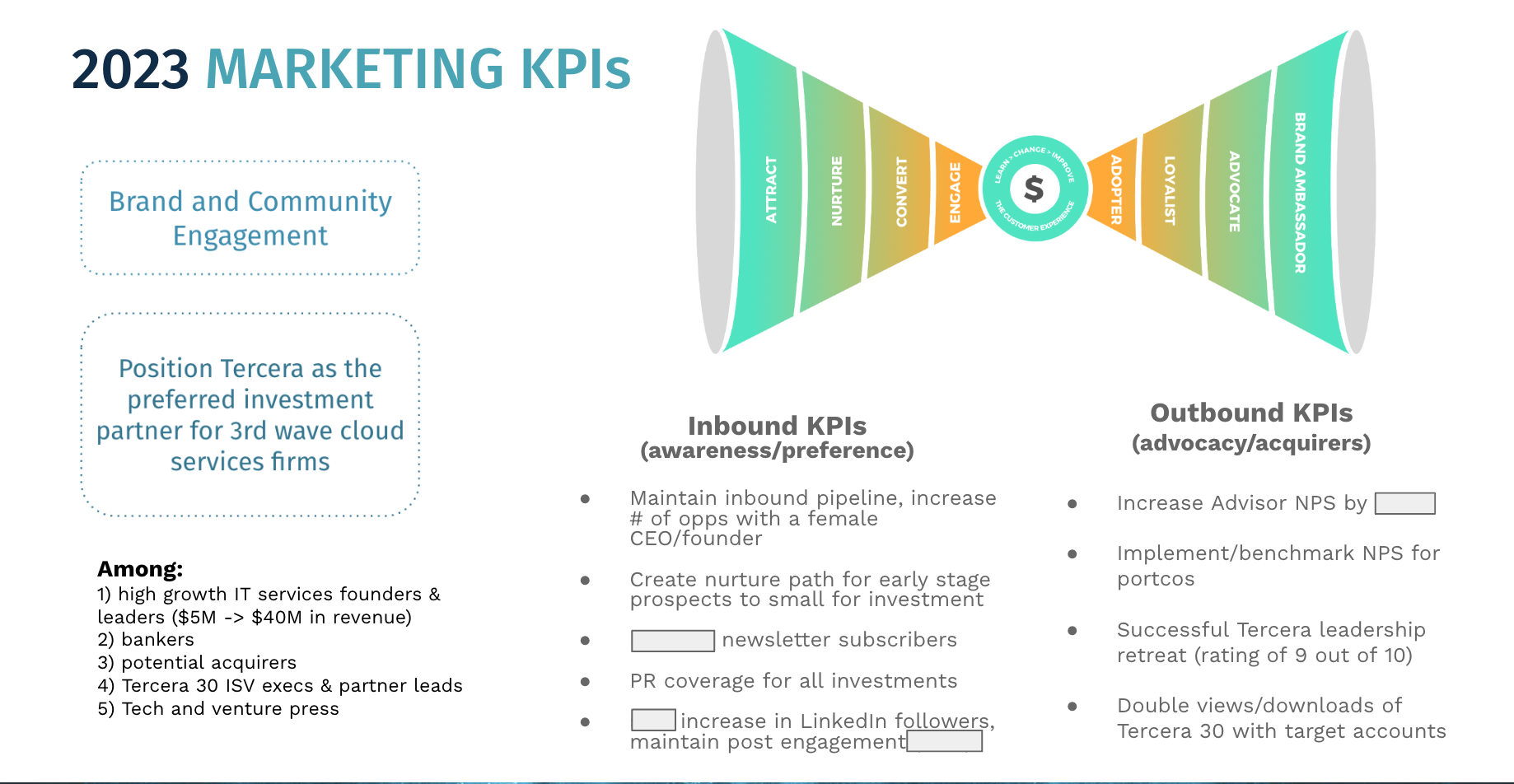Most board directors intuitively understand that marketing is an important part of any company’s growth engine. It not only feeds the near-term sales engine, it also tees up future performance.
Done right, marketing is an accelerator for any business. Yet, I’ve noticed a growing trend in board meetings to relegate marketing to a single metric — pipeline.
While it’s true that marketing plays an important role in generating new leads, a strategic marketing function can play a much bigger role in a company’s near term and future performance. In addition to demand generation, it also shapes market positioning, elevates awareness and brand reputation among existing customers, partners, press, analysts, employees, investors and potential acquirers.
As a company grows, it creates leverage and consistency across global teams, sales, recruiting, customer success, delivery and nearly every other function.
Why are we selling marketing short?
I believe the biggest reason is because marketing is a mystery for many board members. According to research from Spencer Stuart, fewer than 3% of publicly-traded Fortune 1000 boards include an active marketing leader.
The percentage is probably even lower for Series A companies whose boards tend to be composed of founders and investors, most of whom come from a finance, product or operational background and have little marketing experience (a big miss in my perspective, but that’s a topic for another post).
When talking to data-driven board members, stick with what can be measured: marketing’s contribution to the near-term pipeline.
Second, is the need for every business leader to become more data-driven. Events and digital demand-gen activities like paid social campaigns and webinars tend to be easier to track and tie back to near-term revenue when compared to brand, content and corporate marketing.
Things like brand campaigns, PR, analyst relations and even internal communications are both difficult and expensive to measure with regard to return on investment. Most companies know these aspects of marketing are important, but proving ROI on them takes data, systems and time that many younger companies simply don’t have.
Which is why business leaders talking to data-driven board members stick with what can be measured – marketing’s contribution to the near-term pipeline. However, that only tells half the story, and honestly, it does marketing (and the value of your board) a disservice.
Reshaping the board update
A board’s job in a growth company is not just governance, but to guide and help support future performance. That means your board needs to know that marketing is performing well over the next few quarters and is thinking ahead to future years.
When you put together your next board update for marketing, think about five slides that cover the five P’s:
- What are marketing’s priorities?
- How are you performing against those priorities?
- What is the health of the pipeline?
- Is the company and its offerings positioned for future growth?
- What’s planned for the next quarter or year?
Clarify the priorities
A sample quarterly marketing review with highlights and lowlights. Image Credits: Michelle Swan
Start with the areas of the business that marketing is driving or supporting. This can be expressed as quarterly objectives, annual OKRs, or strategic initiatives that map back to the larger business objectives.
For example, if recruiting and retention is a strategic imperative for the business, talk about how you’re helping to refine and drive awareness of the employer brand. If customer retention and expansion is a priority, it might be important to talk about how you’re empowering cross-selling within teams or promoting thought leadership in a certain new area. If your team’s budget and time are going to that priority, let the board know and tell them why.
Show your performance

Create a scorecard against marketing priorities that you can update and share at future meetings. Image Credits: Michelle Swan
Boards look for trends and progress, so create a scorecard against these priorities that you can update and share at future meetings.
If you’re doing something new every month, that’s a red flag. Make it easy to consume by giving areas a red, yellow, green rating based on data, milestones reached, or customer feedback. Make sure you “own the red” as Latane Conant, author and CMO of 6sense, likes to say. Acknowledging where there are gaps not only helps build credibility, it also gives you an opportunity to ask for the board’s help.
Source : 5 marketing slides to bring to your next board meeting












